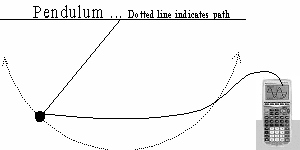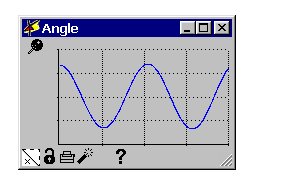|
|
|
|
|
From Principles and
Standards for School Mathematics, NCTM, 2000 |
A Math Course for Graduate-Credit
at
Salisbury University
Course: Math 506 Selected Topics: Mathematical
Models and Modeling for Teachers
Instructors: Drs.
Robert M.
Tardiff, Donald C.
Cathcart, and Steven M. Hetzler
From the text for the course:
This course is designed to help you discover and express
mathematical relationships found in the world around you. As you work
through the activities, we hope that you will
|
The course will be delivered as a series of ten mini-workshops:
followed by two days of student presentations and peer
mentoring:
Monday and Tuesday, August 12th and 13th, 2002.
During the workshops, the instructors will integrate group
work, background discussions, and activity-based learning. Between the workshops
and the student presentations, the instructors will be available via the
internet to support the students as they prepare their presentations. Peer
mentoring will be guided by a rubric provided by the instructors and available
for adaptation to the students' classrooms.
| What will you take to your classroom from this class? | Activities adaptable to your classroom. |
| Lesson Plans adaptable to your classroom. | |
| Rubrics for assessment adaptable to your classroom. |
If you are currently eligible to teach mathematics at the
middle school level, or higher, then you have the mathematical preparation
required to succeed in this course. In addition, it
will be useful to have a natural curiosity and persistence.
For answers to questions about Math ADEPT, please contact:
Dr. Harel Barzilai, harel@barzilai.org, (410) 543 - 6472
or
Dr. Homer Austin ( hwaustin@salisbury.edu, (410) 543 -
6468.
Although pre-registration is not required, it does help to ensure the course is offered. Pre-registration does not commit you, nor is any money due
For Registration there are two steps:
(1) In person registration or (non-degree candidates) by mail. For due dates and info, call the Salisbury University Registrar: 410-543-6150.
(2) You must also print out and fill out the
formhttp://faculty.salisbury.edu/~mathcosc/Adept/TWaiverG.dot and send it to Sarah Christopher, Dept of Mathematics, Salisbury
University, Salisbury MD 21801. This is in order that the NSF grant will
cover your tuition. (The University needs this form as soon as
possible; do not wait until the first day of classes! The course is "Math
506 -- Math Modeling")
25% Attendence & Participation
50% Portfolio
25% Project
& Presentation


View Don Cathcart's home
page.
View Bob Tardiff's
home page.
View
Steve Hetzler's home page.
View
the Summer 2002 schedule for this workshop.
View
the requirements for the final project.
View
the requirements for the portfolio.
View
the lesson plan format for this workshop.
View some sample activities for modeling courses.